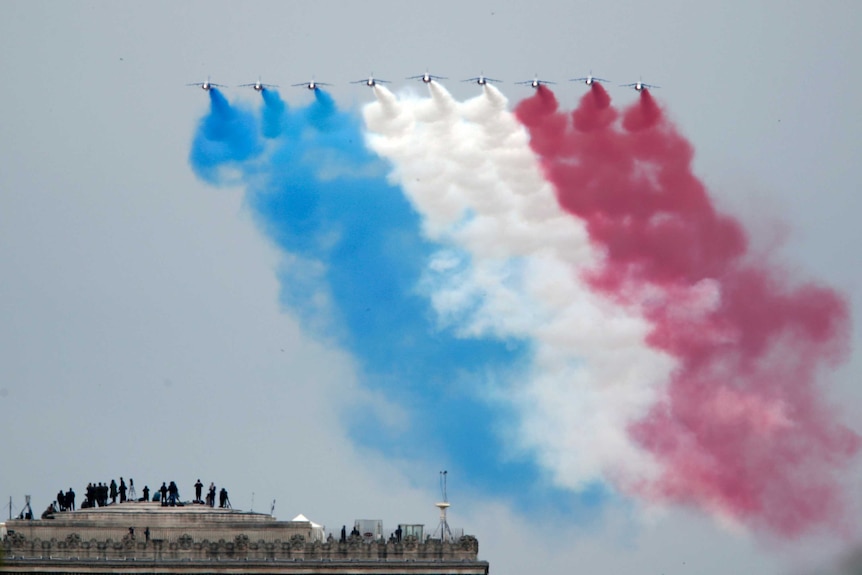It is a well known fact that July 14 is a national day celebrated by the French. In the United States, it is referred to as Bastille Day by Americans celebrating their French roots. While it is considered the equivalent of the 4th of July or ‘French Independence Day’, where people fill up on French food and celebrate French culture, this English language name and reference imply a misconception about France’s revolutionary past specifically by those living in the U.S. Since many independence days around the world are attached to a single event in history and Bastille Day did actually fall on July 14 marking the official beginning of the French Revolution, it is no surprise that such an association is often made. That said, there is more to this than meets the eye when it comes to understanding the meaning of this commemorative day, and a further exploration of this national day of celebration and its relationship to the French culture deserves a more careful look. Perhaps it is helpful to first provide the definition of what we know about this national day.
Simply put, Bastille Day is named after a key event in the French Revolution specifically the storming of a famous French prison — known as the Bastille — held on July 14, 1789. As the story goes, this prison was full of people who had challenged the king or queen over socio-economic issues, and as such, the Bastille served as a symbol of royal authority protecting the monarchy and housing an armoury. The citizens who stormed the Bastille had an aim of seizing weapons, ammunition, and powder to fight the royal troops who were stationed in the Paris vicinity. This was a key event that sparked the beginnings of the French Revolution which akin to the American Revolution, was influenced by ideals spread by the Enlightenment movement around inalienable rights including taking back freedoms, and challenging the status quo.
While English speakers often refer to July 14 as Bastille Day, in France this day is considered more closely related to another historical event — the Festival of the Federation, a mass gathering held on July 14, 1790. This Fête de la Fédération marked the beginnings of a new era, one which abolished absolutism by giving birth to a French constitutional monarchy. Initially held as a national day to herald in a period of national unity, July 14 or Quatorze Juillet is now considered an annual event. Equipped with this understanding, we can next delve deeper into the complexity surrounding the significance of this national day.
To begin with, France has been known to have many national days with each reflecting the politics of its time. In fact, during a little less than a century spanning eras of Napoleon I, Restoration, July Monarchy, Second Republic, and Second Empire, France changed its national day half a dozen times. It was not until the fall of Napolean III and the arrival of the French Third Republic that new symbols were needed. At that point in time, there was fierce conflict between partisans of a monarchy and those in favor of a republican regime. Memory of the French Revolution became one of the main points of contention and hence the choice of a national day an object of dispute. It was not until the Spring of 1880 that a motion to declare July 14 as a national day was put forth by politician Benjamin Raspail. The ambiguity around this date, shared between the Fête de la Fédération which symbolized unity for the right, and the storming of the Bastille symbolizing the people on the left, that both sides found a middle ground. By not specifying which Quatorze Juillet was to be celebrated and just focusing on the connection to the Fête, this motion was passed into law by the parliamant.
While Quatorze Juillet is today recognized as a very important national day of pride for the French, there is no doubt that it also tells a tale of two legacies that showcase the divisive past the French Revolution carries for the French. Whether the revolution’s goals of liberty, egalite and fraternite — as mentioned in the country’s national anthem La Marseillaise — have been achieved is not something that is often pondered. Instead, each year on July 14, the French choose to put their differences aside and spend time with family and friends while basking in celebrations and popular dances, known as the Bal des Pompiers (Fireman’s ball). French troops showcase a lavish military display of power during the annual Bastille Day parade on the Champs-Elysées in downtown Paris. Similar to July 4th, the evening includes extravagant fireworks that draw large crowds and are broadcast on French TV. These fraternal celebrations were the original intention of the Fête de la Fédération and the very ambiguity in Quatorze Juillet – which means many things to many people – has enabled this national day to endure on to this day.
Next time you discuss July 14 with a French person, refer to it as ‘la Fête Nationale Francaise’ or ‘Fete Nat’ or ‘la Fete du 14 Juillet’. As for wishing someone a happy July 14 holiday, don’t mention Bastille Day or the French Revolution . Rather, simply say ‘Bonne Fete Nationale’!


Recent Comments